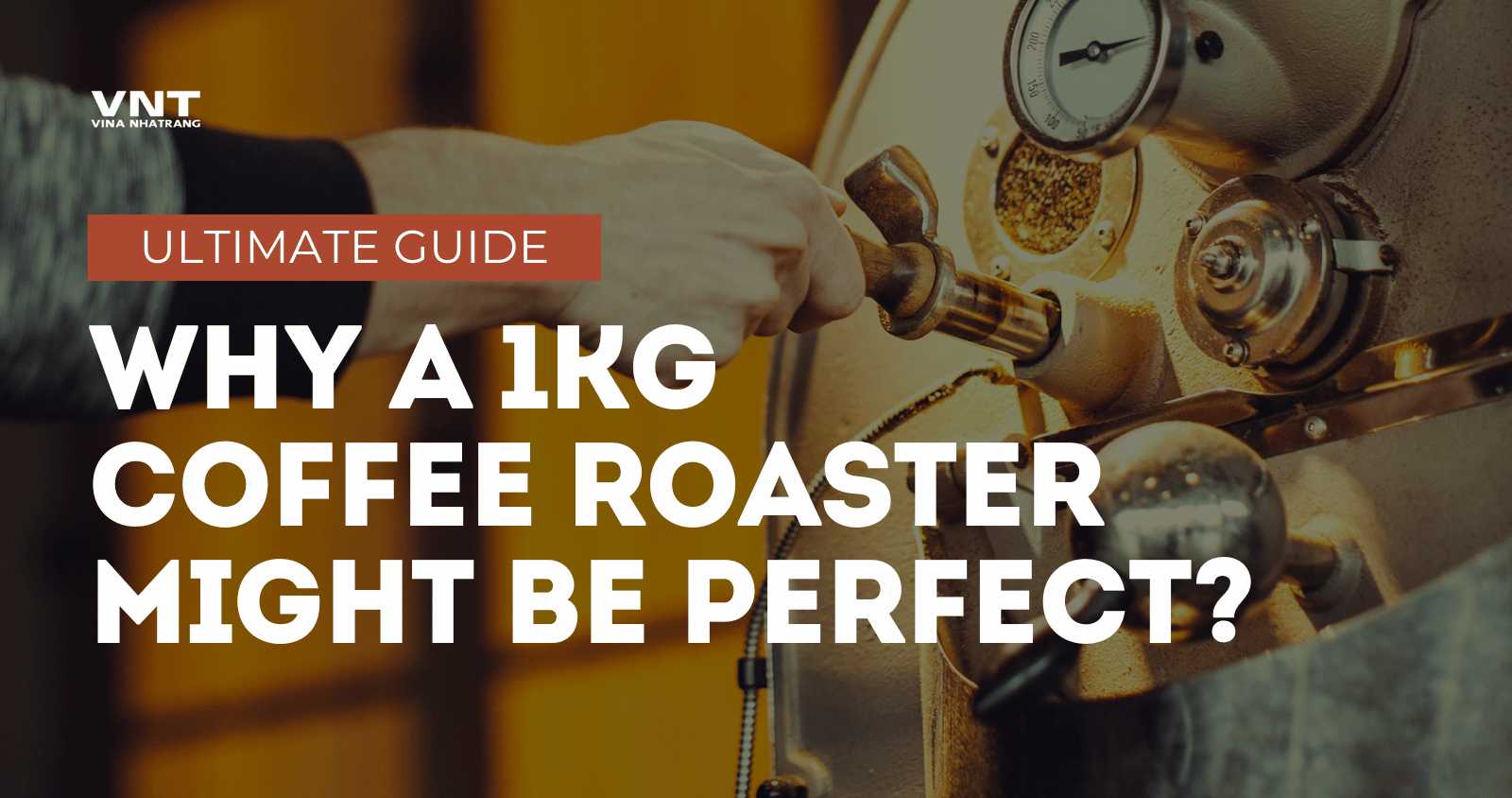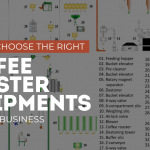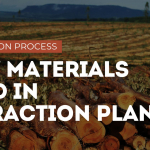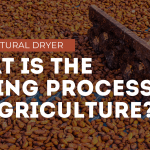Coffee lovers know that the key to the perfect cup lies in the freshness of the beans. If you’re an aspiring home roaster or a small-batch coffee entrepreneur, owning a small coffee roaster — specifically a 1kg coffee roaster — could be the game-changer you’ve been searching for. Whether you want to elevate your brewing experience or start your own roasting business, the right equipment is crucial. But how do you choose the best one?
In this comprehensive guide, we’ll dive deep into the world of small coffee roasters, particularly the 1kg coffee roaster, and explain why they’re becoming a must-have for coffee aficionados. You’ll learn everything from the basics of roasting to how a small coffee roaster can give you more control over your brews. Let’s explore why a 1kg coffee roaster could be your perfect brewing partner.
Why You Should Consider a Small Coffee Roaster
In recent years, small coffee roasters, especially those with a 1kg capacity, have gained significant popularity among home coffee enthusiasts, small-batch businesses, and even cafes. But what exactly makes them so appealing? Here are several compelling reasons why a small coffee roaster — particularly one with a 1kg capacity — could be the right investment for you:
1. Total Control Over Your Roast
One of the most significant benefits of owning a small coffee roaster is the level of control it gives you over your coffee roasting process. Larger, industrial roasters tend to have preset functions and require more automation, but with a small coffee roaster, you can experiment and tweak every aspect of the roast.
For example, with a 1kg roaster, you can adjust:
- Roast time: How long you roast the beans impacts the flavor profile. Lighter roasts require a shorter roasting time, while darker roasts need longer exposure to heat.
- Temperature settings: Different temperatures bring out different notes in coffee. Roasting at a lower temperature can emphasize bright, fruity flavors, while higher temperatures can produce deeper, chocolaty, or smoky flavors.
- Airflow: A 1kg coffee roaster often gives you the ability to control the airflow, which can influence the rate at which heat is applied to the beans. This is particularly important for producing consistent roasts.
If you’ve ever wanted to create the perfect cup of coffee tailored exactly to your taste preferences, having control over the roast profile is crucial. A small coffee roaster, especially one that’s easy to adjust and experiment with, gives you that power.
2. Freshness That Can’t Be Beat
Freshly roasted coffee is the pinnacle of flavor. If you’ve ever brewed a cup from beans roasted that day, you’ll know the difference it makes. Coffee is a perishable product, and once it’s roasted, it begins to lose its flavor. Store-bought coffee, especially the mass-produced kind, often sits on shelves for weeks or months, losing its freshness and subtle notes.
A small coffee roaster, like a 1kg model, allows you to roast small batches of coffee to order. You can roast just enough beans to last you for a few days or a week, ensuring that you’re always drinking coffee at its peak. Not only does this provide a superior cup, but it’s also more satisfying knowing that your coffee is fresh from start to finish.
Roasting your own beans means you’re experiencing the freshest coffee possible. You won’t have to worry about stale, flat flavors from pre-roasted beans sitting on a shelf.
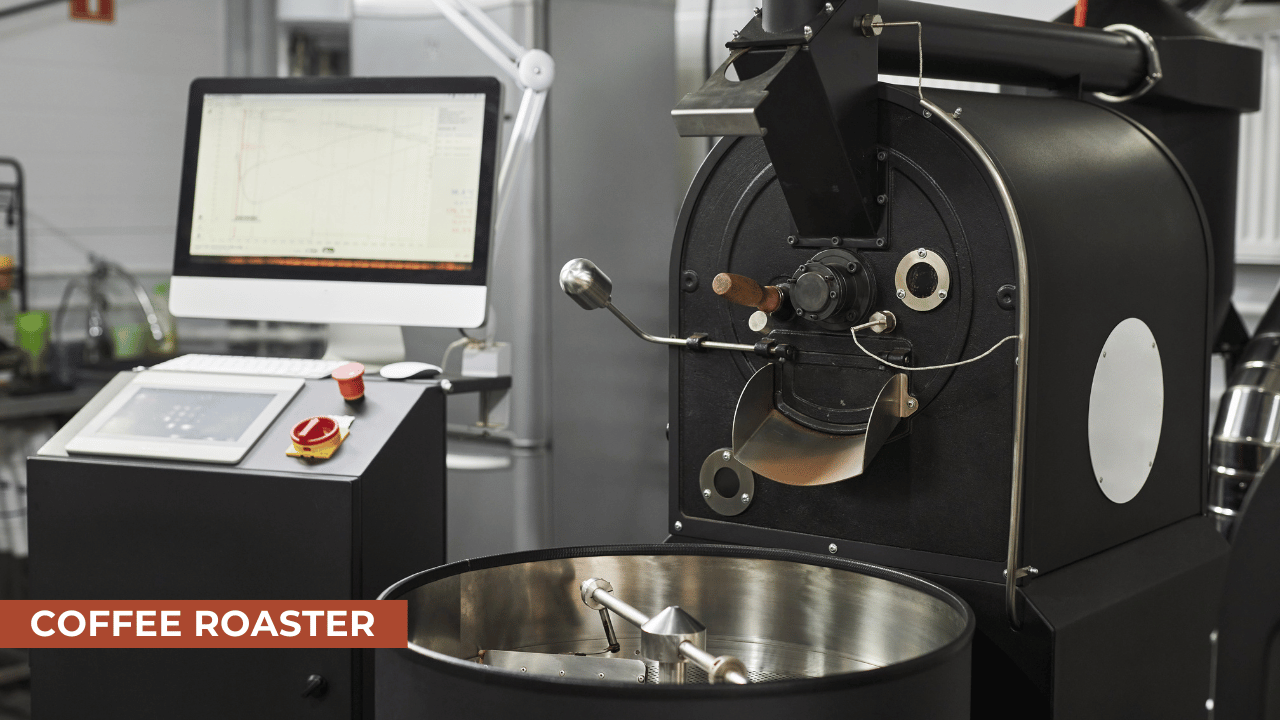
3. Cost-Effective for Small Businesses
For those considering opening a small coffee roastery or a café, a 1kg coffee roaster can be a highly cost-effective solution. Large-scale roasting machines can cost tens of thousands of dollars — a significant investment for a small business. A 1kg roaster, on the other hand, is affordable (typically ranging from $1,000 to $3,000 depending on the brand and features) and is more than sufficient for small batches. It’s an ideal entry-level tool for entrepreneurs who want to test the waters before scaling up.
Moreover, small-batch roasting allows you to avoid the risk of overproduction. Many small businesses are better off roasting to order or in limited batches, especially when they’re still finding their feet in the competitive coffee market. A 1kg roaster offers flexibility and financial feasibility while still producing high-quality beans.
For home-based businesses or small coffee shops looking to differentiate themselves, roasting your own beans also allows you to offer customers a unique and high-quality product. Freshly roasted, small-batch coffee could become a signature offering that sets your brand apart.
4. Hands-On Experience
Roasting coffee is an art and a science. While some people prefer to leave it to the professionals, there’s something truly satisfying about roasting your own beans. A small coffee roaster lets you get involved in every step of the process, from selecting the beans to adjusting the settings to the final cooling of the beans. It’s a deeply personal experience that can make your coffee more enjoyable — especially when you know you’ve had a hand in creating it.
The best part is that the more you roast, the better you get at it. You’ll learn about the different coffee varieties, how they respond to different roasting conditions, and how to develop your own signature flavors. For those who want a deeper connection with their coffee, this hands-on experience is invaluable.
5. Minimal Space Requirement
Space is often a limitation for home roasters or small businesses. Large commercial roasters can take up a significant amount of space, making them impractical for people working from home or in small shops. A 1kg coffee roaster is compact and can fit easily on a countertop or in a small roasting area. Whether you’re roasting coffee at home or in a small boutique, these roasters won’t take up much room but will still provide all the functionality you need.
This makes small coffee roasters a great choice for anyone who wants to roast high-quality coffee without the need for a large commercial setup. Whether you’re a hobbyist or running a small-scale operation, the portability and compactness of a 1kg roaster make it an excellent solution.
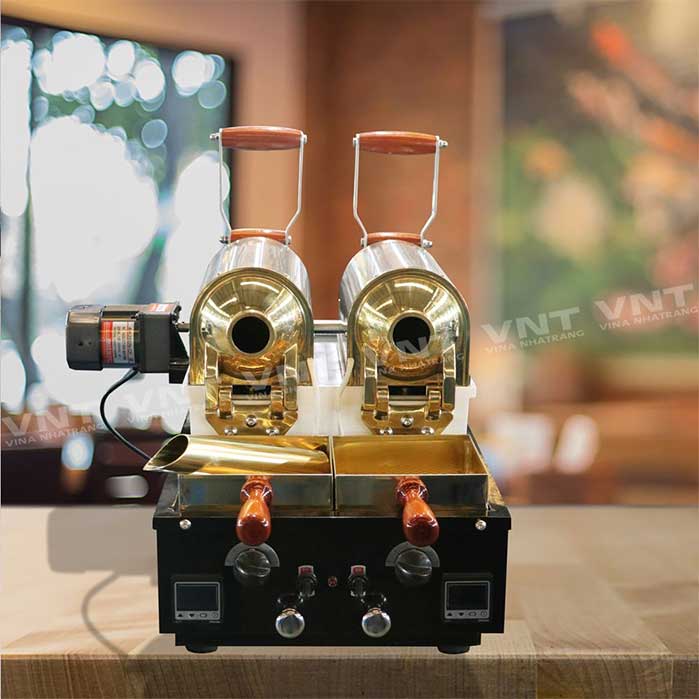
What Is a 1kg Coffee Roaster?
A 1kg coffee roaster is a roasting machine designed to handle small batches of coffee, typically up to 1 kilogram (about 2.2 pounds) of green coffee beans per cycle. It’s considered a “small batch” roaster compared to commercial roasters that can handle much larger quantities, often in the tens or hundreds of kilograms.
The 1kg capacity makes it perfect for home enthusiasts who want to take their coffee roasting to the next level, as well as small-batch coffee shops, micro-roasteries, and startups that are testing the market. With a 1kg roaster, you’re able to roast enough coffee to supply your personal needs or run a small coffee business, all while maintaining complete control over the roast process.
But what exactly makes a 1kg roaster different from other coffee roasters, and why is it such a popular choice for small-scale roasting operations? Let’s break it down.
1. Size and Capacity: The Sweet Spot for Small Batch Roasting
The 1kg capacity is seen as the “sweet spot” for small batch coffee roasters. Here’s why:
- Flexibility: Roasting 1kg at a time provides a good balance between volume and experimentation. It’s enough to create diverse batches, try different roast profiles, and still be manageable for beginners. At the same time, it’s small enough to avoid waste, making it an excellent option for home roasters or businesses that want to avoid overproducing.
- Scalability: While it’s perfect for starting out, a 1kg roaster also gives you room to grow. You can always scale up by roasting more batches throughout the day, which makes it a versatile tool for both hobbyists and small-scale commercial operations.
- Convenience: A 1kg roaster is portable and won’t take up too much counter space. This is a key consideration for people roasting at home or in small shops with limited space. For home roasters, having a compact unit that doesn’t dominate the kitchen is a huge benefit.
2. How Does a 1kg Coffee Roaster Work?
While every brand and model may have specific features, the general process for how a 1kg coffee roaster operates is fairly consistent. Understanding how it works can help you decide if it’s the right fit for your coffee roasting goals. Here’s a breakdown of the steps involved:
Step 1: Preheating
Before you begin roasting, the roaster needs to preheat to the desired temperature. This is an essential step because the temperature of the roaster will determine how the coffee beans roast. Most 1kg roasters have a digital or manual temperature control system that lets you set the temperature before the beans are added. Some models even have built-in timers that help you track the entire process.
Step 2: Adding the Beans
Once the machine is preheated, it’s time to add the green (unroasted) coffee beans into the roasting drum or chamber. Most 1kg coffee roasters are designed with a rotating drum, which helps ensure even heating and consistent roasting. The beans will start to absorb heat, and their physical and chemical properties will begin to change.
Step 3: Roasting
The roasting process itself is where the magic happens. As the beans roast, they undergo several stages:
- Drying Stage: In the first 3-5 minutes, the beans lose moisture. This is important to ensure an even roast.
- Browning Stage: The beans start to brown as they absorb heat, and the Maillard reaction begins. This stage influences the flavor profile of the coffee.
- First Crack: The first crack is a critical moment when the beans begin to expand and “pop.” This is the point at which light roasts typically stop roasting.
- Development Stage: After the first crack, the beans continue to develop flavor. Depending on the roast level you want, the beans may continue to roast for several more minutes.
- Second Crack (for darker roasts): If you prefer dark roasts, you’ll reach the second crack, which produces an even deeper roast flavor.
Throughout the process, the roaster maintains constant heat and air circulation to ensure the beans roast evenly. Many small 1kg roasters will allow you to adjust the temperature during the roasting process, giving you fine control over how dark or light the beans turn out.
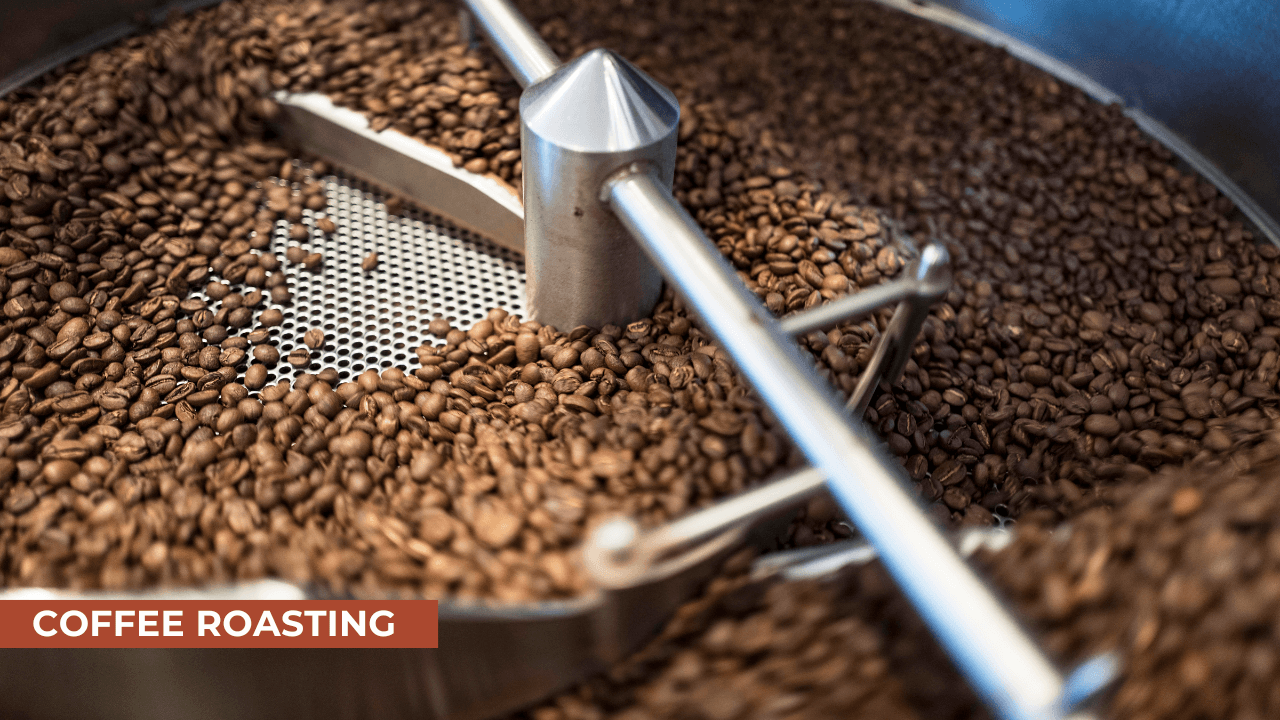
Coffee Roasting
Step 4: Cooling
Once your desired roast level is reached, it’s time to cool the beans. Cooling is critical because it stops the roasting process immediately, preserving the flavor profile. Most 1kg roasters have an automatic cooling system, often using a fan, to rapidly lower the temperature of the beans.
After cooling, the beans are ready for packaging or brewing. But don’t forget that roasted coffee should be allowed to rest for a few hours (or even a day) to fully develop its flavors before brewing.
3. The Ideal Roasting Profile for Small Businesses
A 1kg roaster is an excellent tool for businesses because it lets you create custom roast profiles for your customers. While large-scale roasters are better suited for mass production, small-batch roasting allows you to experiment with different beans and profiles. You can offer a wide variety of flavors, from fruity light roasts to bold dark roasts, or create a unique house blend.
With a 1kg coffee roaster, you can also ensure that you’re roasting only what you need — minimizing waste and ensuring the highest level of freshness for each batch. Small businesses also benefit from the flexibility to change up the roasting profiles depending on the season, customer demand, or new beans you want to experiment with.
For small-batch coffee shops or roasteries looking to establish a niche market, having a 1kg roaster allows you to build a reputation for offering high-quality, freshly roasted coffee with a personal touch.
4. Affordability and Cost-Effectiveness
While large commercial roasters can cost anywhere from $10,000 to $50,000 or more, a 1kg coffee roaster typically costs between $1,000 to $3,000. This makes it an affordable option for people just starting in the roasting business, small cafes, or home roasting enthusiasts who don’t want to break the bank.
In addition to the lower upfront cost, smaller roasters are also more energy-efficient and easier to maintain than large machines. They use less electricity, which means lower running costs for small businesses. Over time, a 1kg roaster can pay for itself, especially when you consider the higher profit margins you’ll get from roasting and selling your own beans.
FAQs About Small Coffee Roasters and 1kg Roasters
If you’re new to the world of coffee roasting, or even if you’re considering upgrading to a small coffee roaster, it’s natural to have a lot of questions. From basic operation to practical concerns, we’ve gathered some of the most frequently asked questions (FAQs) about small coffee roasters and 1kg coffee roasters. Let’s dive in!
1. What’s the Best Coffee Roaster for Beginners?
For beginners, it’s important to look for a roaster that’s user-friendly, affordable, and offers enough control over the process without being overwhelming. A 1kg coffee roaster is often an excellent starting point, and here are a few models that stand out for first-timers:
- Behmor 1600: One of the most popular choices for home coffee roasters, the Behmor 1600 offers an excellent combination of affordability, ease of use, and customizable roast settings. It has preset profiles for those who want an easy, one-touch roasting experience, but it also allows for more precise control for those looking to experiment. It’s an excellent option for beginners who want to start with a 1kg batch size.
- San Franciscan SF-1: This is a high-quality, entry-level professional roaster, perfect for small-batch roasting. While it’s on the more expensive side, its precision, durability, and user-friendly interface make it worth the investment for serious beginners looking to get into small-scale roasting. It’s a robust, reliable choice for both new and experienced roasters.
- Hottop KN-8828B-2: Known for its ability to roast small batches (up to 1kg) with excellent control over time and temperature, the Hottop roaster offers both beginner-friendly features and more advanced controls for those looking to refine their roasting skills.
When choosing a roaster as a beginner, look for a model that offers easy temperature control, a clear interface, and simple cooling mechanisms. It’s also helpful to select a roaster with preset roast profiles and a strong user manual that can guide you through your first few batches.
2. How Much Coffee Can a 1kg Roaster Produce?
A 1kg coffee roaster, as the name suggests, can roast up to 1 kilogram (2.2 lbs) of green coffee beans per batch. However, it’s important to note that during the roasting process, beans lose weight as they shed moisture. This means that a 1kg batch of green beans will yield around 800 to 900 grams of roasted coffee — depending on the type of bean and the roast level.
If you’re roasting coffee for personal use, this is typically enough to last several weeks (depending on your consumption), but if you’re running a small coffee shop or roasting for friends and family, you may need to roast multiple batches per day.
For small-scale businesses, a 1kg roaster allows for a manageable amount of production, which is key for testing the market or offering freshly roasted coffee on a smaller scale. You can rotate different batches to create variety without overwhelming your customers or wasting beans.
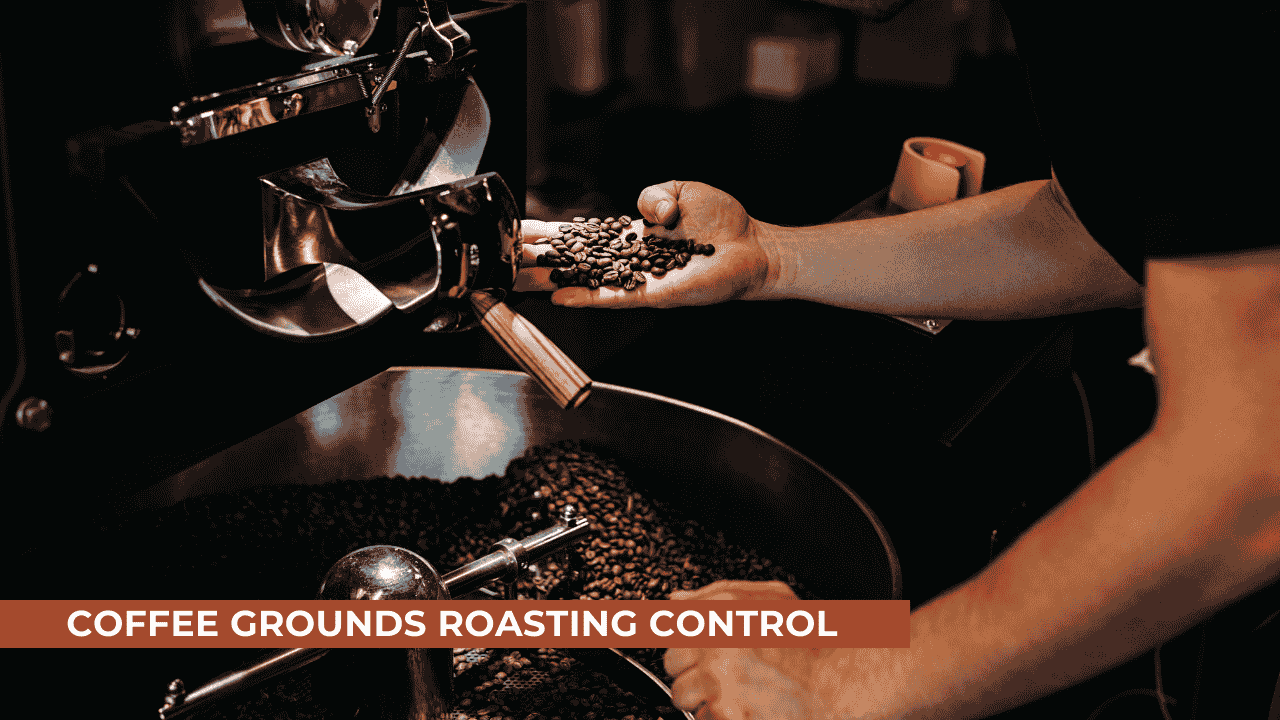
3. How Long Does It Take to Roast 1kg of Coffee?
The time it takes to roast 1kg of coffee varies based on several factors, such as the roaster model, the type of beans, the roast profile (light, medium, dark), and the roasting method (convection, drum, or air roasting). However, for most 1kg coffee roasters, the roasting process typically takes 12 to 20 minutes.
- Lighter roasts usually take less time, closer to the 12-minute mark.
- Darker roasts will take longer, generally in the 15 to 20-minute range, as the beans need more time to reach higher temperatures and develop the deeper, rich flavors associated with darker roasts.
Most small 1kg roasters come with a timer function and a temperature gauge, so you can easily monitor and adjust the roasting time based on the profile you’re aiming for. For beginners, it’s a good idea to start with medium roasts and gradually experiment with longer or shorter roasting times to refine your skills.
4. Is It Difficult to Learn to Roast Coffee?
While roasting coffee might seem intimidating at first, it’s not as difficult as you might think. The key is to start with small batches and learn from each roast. Here are a few tips to help make your coffee roasting journey smoother:
- Start with a simple roaster: Choose a 1kg coffee roaster that’s beginner-friendly and offers preset roasting profiles or automatic functions. This will help you focus on the basics without getting overwhelmed.
- Experiment with small batches: Don’t worry about perfecting everything on your first try. Start with small batches (1kg is a great start) and try different temperatures, roast levels, and timings to learn how each factor affects the flavor.
- Track your results: Take notes on every batch. Record the roast time, temperature, and your impressions of the flavor. This will help you refine your technique over time.
- Consult resources: There are plenty of resources online, including forums, blogs, and videos, where coffee roasters share their tips and experiences. You can also learn from experienced roasters and gain valuable insights.
Roasting coffee is an art that improves with practice. Many beginners find it a fun and rewarding process once they get the hang of it. So, while it may seem a little tricky at first, once you get familiar with the process, it becomes much easier and enjoyable.
5. How Much Does a 1kg Coffee Roaster Cost?
The price of a 1kg coffee roaster can vary widely depending on the brand, features, and quality. On average, you can expect to pay anywhere from $1,000 to $3,000 for a high-quality 1kg roaster. Here’s a breakdown of what you might find in this price range:
- Entry-level 1kg roasters: These typically cost between $1,000 and $1,500. They are perfect for home enthusiasts and beginners, offering basic temperature control and user-friendly interfaces. Examples include the Behmor 1600.
- Mid-range roasters: These models range from $1,500 to $2,500 and are ideal for small businesses or serious home roasters who want more precise control over the roasting process. They often come with more advanced features like profile programming and manual control. Models like the Hottop KN-8828B-2 and San Franciscan SF-1 are examples in this range.
- High-end roasters: The more advanced, professional-grade 1kg roasters cost around $2,500 to $3,000. These are designed for serious roasters who want the highest precision and most durable machines. These models often come with advanced features like custom roasting profiles, data logging, and better cooling systems.
If you’re just starting out and you’re on a budget, there are entry-level options that offer great value without compromising quality. However, for small businesses looking to scale up, it may be worth investing in a mid-range or higher-end machine that provides more control and longevity.
Key Features to Look for in a 1kg Coffee Roaster
When choosing the right 1kg coffee roaster for your needs, consider the following features:
- Temperature Control: Look for a roaster with precise temperature controls, allowing you to fine-tune your roasts to perfection.
- Cooling System: A good cooling system ensures that your beans stop roasting immediately after reaching the desired level, locking in flavor and preventing over-roasting.
- User Interface: If you’re new to roasting, choose a roaster with an easy-to-navigate interface, presets, and intuitive controls.
- Durability: You want a machine that will last, so invest in a sturdy roaster made from high-quality materials.
- Batch Size Flexibility: Some 1kg roasters allow you to adjust batch sizes slightly, which is helpful for experimenting with different quantities.
Conclusion: The Magic of Small Batch Roasting
If you’re looking to elevate your coffee experience, a small coffee roaster, particularly the 1kg variety, can be an invaluable tool. Not only does it give you greater control over the roasting process, but it also opens up a world of flavor possibilities that mass-produced coffee simply can’t match. Whether you’re roasting for personal enjoyment or considering starting a small coffee business, a 1kg coffee roaster provides the perfect balance of affordability, flexibility, and quality.
Investing in the right equipment — and taking the time to learn the craft — will pay off with every cup you brew. With a 1kg roaster, you’re not just making coffee; you’re crafting an experience. Are you ready to take your coffee game to the next level? The journey of small-batch roasting awaits!
Ready to Start Roasting?
If you’re serious about roasting your own beans, explore the best 1kg coffee roasters on the market today and start perfecting your roast. Your perfect cup of coffee is just one batch away!
